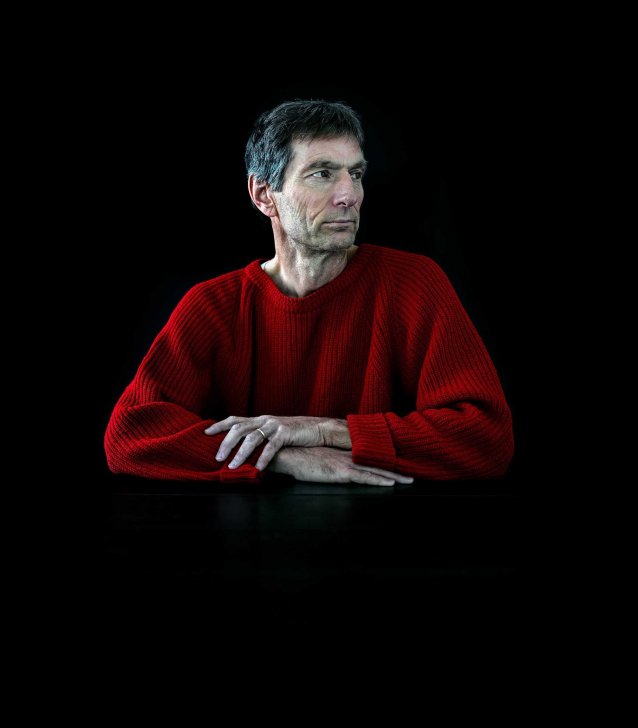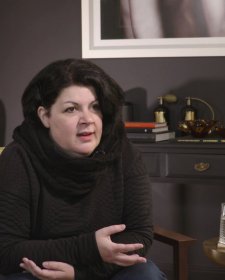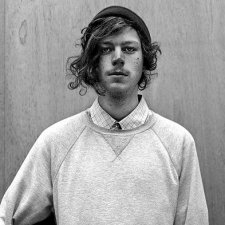- Is it 'Roof' or 'Rough'?
- Tilman Ruff, it's a German name but in English yes, Tilman Ruff is fine.
- My family had lived in Palestine as German Christians where my great grandparents had immigrated. In the First World War displaced, inturned in Egypt for three years but were able to go back and rebuild and then essentially within an hour of the outbreak of the Second World War were given notice to evacuate and were detained initially in Palestine and then in Australia until 1947 behind barbed wire. So, those stories were very strong for me. The memory of war and my family were enormously grateful to be given the opportunity to rebuild their lives anew in Australia. And my dad on the basis of having been able to complete his German matriculation in the prison camp because they had been organised in self-contained communities was able to go to Melbourne Uni to study engineering. So, he basically walked out of the barbed wire and the machine gun posts into Melbourne Uni to study, which is a lovely story. My mother had died tragically in Adelaide seven months after my youngest brother was born in a car accident in the days before seat belts. So that was kind of the defining, I guess that had a major influence on our, on our family. So, we came to Melbourne as soon as my father was able to get a transfer and then he remarried and we lived next to his parents. But we were well looked after and given a fair bit of scope. So, even when my parents didn't agree with me, you know they kind of let me run, and I think they probably recognised they'd have trouble stopping me anyway. But one thing I'm very grateful for, one of those things that sticks out, was when in 1970 I wanted to join one of the Vietnam Moratorium Marches to end Australia's involvement in that tragic war. My father didn't necessarily agree with me. He didn't go to the march but he wrote a letter to the principal of the school saying, "Tilman feels very strongly about this and I don't necessarily agree with him but I'd be grateful if you could give him the day off school so he could join that march." So, that was one of a couple of experiences in adolescence that was very empowering. Being part of a large group of people who really could change the course of a nation and influence leadership decisions. Nuclear weapons are awful to think about. They're scary, they're hard to grasp. So, I think humans are very good at denial and all sorts of psychological protective mechanisms. And we, kind of many of us, I think just park that threat that this is basically all done and dusted but thousands of those weapons still exist. Numbers have been reduced by over 80% so it's been a step in the right direction. But the policies to use them, having thousands of them on high alert status ready to be launched within a few minutes of a decision to do so, their vulnerability to computer glitches, various combinations of technical and human error is profound and has persisted and has now really reemerged with new nuclear powers. And once that radiation is released it doesn't respect borders, it doesn't ask for a passport to go anywhere, it's out there and it has effects across generations. This is really the paramount challenge of our age. And we're the first human generation to face not one but two existential threats of our own making. Climate disruption through unchecked global warming and nuclear winter and nuclear famine if nuclear war happens. We don't have the luxury of time on either of those. And I think it's really important that people engage with these issues and it doesn't matter how that awareness is triggered. It may be a piece of music, it may be a piece of art, it may be a portrait in the National Portrait Gallery. It may be a talk from somebody, it may be reading something, it may be somebody else initiating a conversation. All of these things and more need to happen to raise these issues. But I think yes, many people are appreciating the connections much more than they used to.
- We have a share in a cooperative farm in the northeast of Victoria. Which is very beautiful, it's completely surrounded by bush and mountains and state forest and has a couple of creeks flowing through it. It's off-grid and there are five dwellings on it and it's a wonderful place. I've had horses there, I look after fruit trees it's my sort of solace and retreat. Charlotte my wife and I, it's the only house we've had the opportunity to design and build. It's a small but very Japanese house that we love, love dearly. And lots of friendships came together in the creation of that house so that's a pretty special place. So, yes this red jumper, Nicki said bring a couple of shirts and a few jumpers, I was sort of reasonably you know well-dressed I thought not formal but you know respectable. But she clearly was quite a creative and very down to earth person when we spoke and she wanted me to bring a variety of things. So, essentially when I arrived at her place and she saw the old farm jumper which for decades has lived on the farm, and is now completely comfortable and you know, has got holes in the elbows and holes in lots of other places, and as soon as she saw it she said, put that on. So, I took my shirt off and put on the farm jumper. So, I like it for lots of reasons but it's one of those jumpers that's been worn for long enough that it's really comfortable. You feel completely relaxed in it. And the association with the farm is for me very lovely and in some ways, you know whoever needs a big floppy, friendly, cozy jumper on the farm tends to wear it. So, that's the jumper and my arm must be just across the hole in the front of it.
- The Nobel Prize is a big deal and the Nobel Peace Prize is a very big deal. ICAN's achievement in receiving the 2017 Nobel Peace Prize was of course deeply humbling, a wonderful, wonderful honor, really important recognition of the urgency and importance of the work and of the danger of nuclear weapons. And for me the most important thing was recognition of the historic United Nations treaty on the prohibition of nuclear weapons that 122 nations had negotiated and voted for the adoption of in the General Assembly earlier that year. And of course it gives enormous encouragement to the people who've worked on these issues, civil society and governments, alike. That what they do matters and we now need to use this treaty to finish the job and work towards the elimination of nuclear weapons. Controlling climate change, having a hospitable and stable climate both from preventing runaway global warming and preventing an abrupt ice age from nuclear weapons is entirely within our capacity. We have the tools, we know what to do. This needs very determined will and commitment but this is doable. On the one hand these issues are difficult, challenging, big. These are not things that individually people can address. But working together these are things that humans created that are within the human capacity to control. And I think for me the sort of bright spot on the side of that awesome responsibility that no human generation has ever had to confront. But at the same time that's an enormous opportunity. No generation has ever had the capacity to do so much good for themselves, for all of the things they love and care about, for the future of the world. To literally save the world. That's the opportunity that we have.














